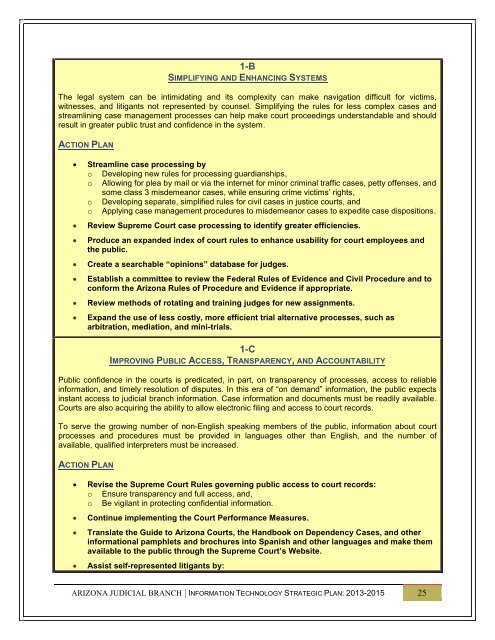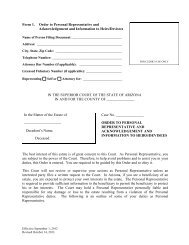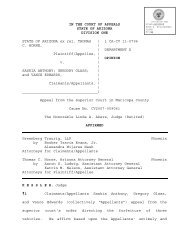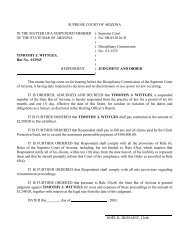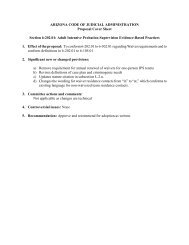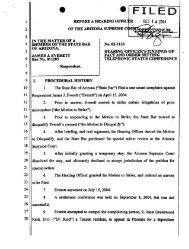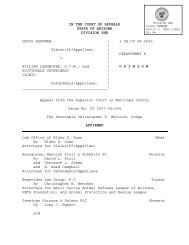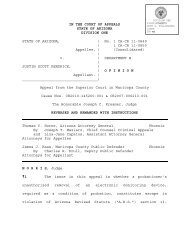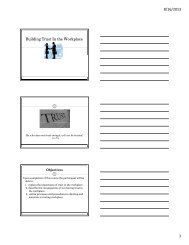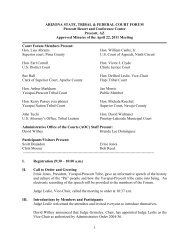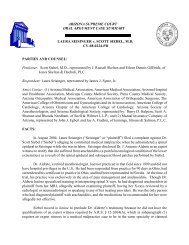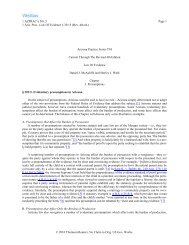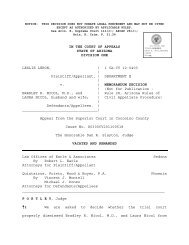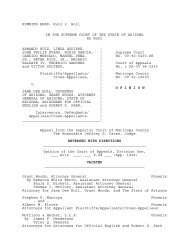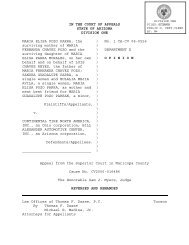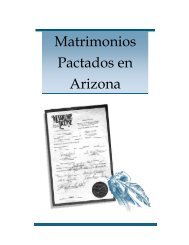Print Version - Arizona Judicial Department
Print Version - Arizona Judicial Department
Print Version - Arizona Judicial Department
Create successful ePaper yourself
Turn your PDF publications into a flip-book with our unique Google optimized e-Paper software.
1-B<br />
SIMPLIFYING AND ENHANCING SYSTEMS<br />
The legal system can be intimidating and its complexity can make navigation difficult for victims,<br />
witnesses, and litigants not represented by counsel. Simplifying the rules for less complex cases and<br />
streamlining case management processes can help make court proceedings understandable and should<br />
result in greater public trust and confidence in the system.<br />
ACTION PLAN<br />
Streamline case processing by<br />
o Developing new rules for processing guardianships,<br />
o Allowing for plea by mail or via the internet for minor criminal traffic cases, petty offenses, and<br />
some class 3 misdemeanor cases, while ensuring crime victims’ rights,<br />
o Developing separate, simplified rules for civil cases in justice courts, and<br />
o Applying case management procedures to misdemeanor cases to expedite case dispositions.<br />
Review Supreme Court case processing to identify greater efficiencies.<br />
Produce an expanded index of court rules to enhance usability for court employees and<br />
the public.<br />
Create a searchable “opinions” database for judges.<br />
Establish a committee to review the Federal Rules of Evidence and Civil Procedure and to<br />
conform the <strong>Arizona</strong> Rules of Procedure and Evidence if appropriate.<br />
Review methods of rotating and training judges for new assignments.<br />
Expand the use of less costly, more efficient trial alternative processes, such as<br />
arbitration, mediation, and mini-trials.<br />
1-C<br />
IMPROVING PUBLIC ACCESS, TRANSPARENCY, AND ACCOUNTABILITY<br />
Public confidence in the courts is predicated, in part, on transparency of processes, access to reliable<br />
information, and timely resolution of disputes. In this era of “on demand” information, the public expects<br />
instant access to judicial branch information. Case information and documents must be readily available.<br />
Courts are also acquiring the ability to allow electronic filing and access to court records.<br />
To serve the growing number of non-English speaking members of the public, information about court<br />
processes and procedures must be provided in languages other than English, and the number of<br />
available, qualified interpreters must be increased.<br />
ACTION PLAN<br />
Revise the Supreme Court Rules governing public access to court records:<br />
o Ensure transparency and full access, and,<br />
o Be vigilant in protecting confidential information.<br />
Continue implementing the Court Performance Measures.<br />
Translate the Guide to <strong>Arizona</strong> Courts, the Handbook on Dependency Cases, and other<br />
informational pamphlets and brochures into Spanish and other languages and make them<br />
available to the public through the Supreme Court’s Website.<br />
Assist self-represented litigants by:<br />
ARIZONA JUDICIAL BRANCH | INFORMATION TECHNOLOGY STRATEGIC PLAN: 2013-2015 25


